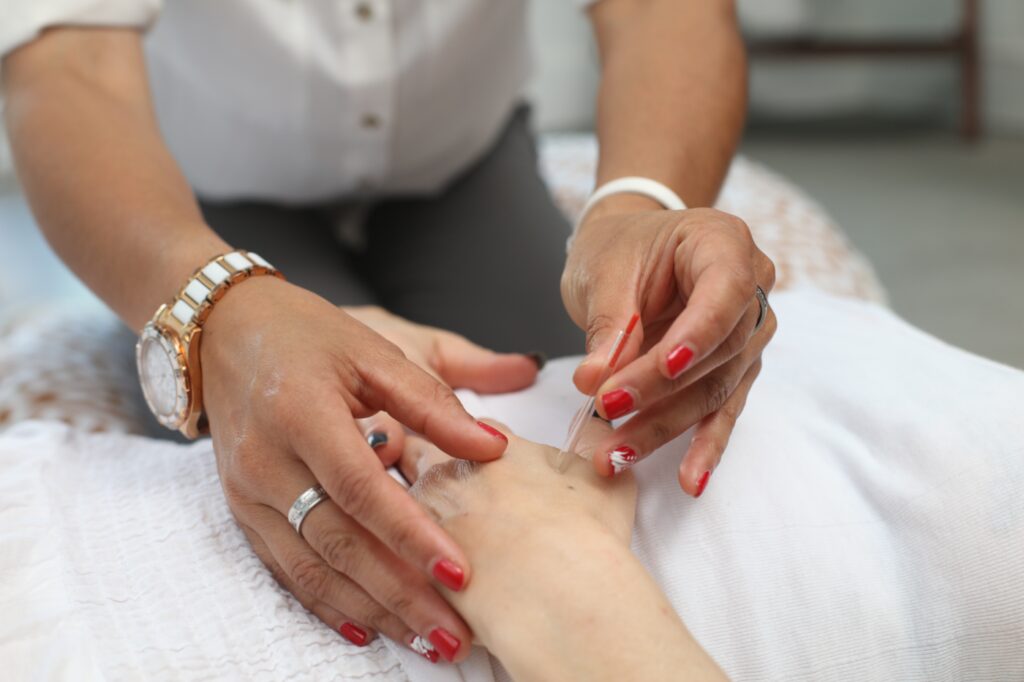Olivia Newton-John was quite open about her battle with breast cancer and spoke highly of its benefits from using complementary therapies like acupuncture as part of her treatment. Sharon Stone shared similar sentiments regarding alternative therapies like acupuncture in her experience with breast cancer treatment, and remains an ardent supporter of ongoing cancer research.
Dr. Andrew Weil, an esteemed integrative medicine doctor and author, has expressed his enthusiasm for using acupuncture in cancer care. While not himself diagnosed, he advocates its use as a complementary therapy in order to manage treatment side effects, enhance overall well-being, and support natural healing processes of the body.
Dirk Benedict, best known as Lieutenant Templeton “Faceman” Peck from TV show “The A-Team,” who battled prostate cancer was one of the primary influences in my journey with cancer. In his book, Confessions of a Kamikaze Cowboy, he detailed how alternative therapies like macrobiotics and acupuncture played an instrumental part in his recovery process.
Origins of Acupuncture
Although its precise roots are difficult to ascertain with absolute certainty, the first recorded acupuncture treatment and early written documentation of its principles that we found can be traced back to ancient China.
Tradition has it that acupuncture was accidentally discovered. According to legend, early practitioners observed that soldiers wounded by arrows during battle found relief and improved symptoms in unrelated areas of their bodies after having been shot with an arrow, leading them to realize specific points on the body could be stimulated to create therapeutic effects beyond immediate area of treatment.
Over time, acupuncture theory and practice evolved further, incorporating concepts like Qi (vitality energy) flow and the meridian system. Ancient Chinese believed that health depended upon an uninterrupted stream of Qi through meridians or channels and saw Acupuncture as a means to restore and harmonize this energy flow thereby improving overall well-being.
If you want to learn more about the origins of acupuncture, check out this material:
- The Huangdi Neijing (Yellow Emperor’s Inner Canon), an ancient Chinese medical text written around 200 BCE that details acupuncture theory, techniques, and applications.
- Yellow Emperor’s Inner Classic: Huangdi Neijing Suwen by Maoshing Ni is an English translation of Huangdi Neijing Suwen that provides insights into its theory, principles, and practice as it appears in its text.
- Yellow Emperor’s Inner Canon: The Neijing Suwen by Ilza Veith: Another well-regarded English translation, this book presents a comprehensive interpretation of the Suwen section and includes discussions of acupuncture theory and concepts.
- Chinese Medicine: The Web That Has No Weaver by Ted J. Kaptchuk: Although not exclusively dedicated to Huangdi Neijing, this book provides a more in-depth view of traditional Chinese medicine – and specifically acupuncture – than ever before, covering its historical context, theory and application within Chinese medical practices alike.
Understanding Acupuncture
Quite simply, acupuncture involves inserting thin needles at specific points on the body in order to increase energy flow and restore equilibrium. By targeting all aspects of health simultaneously, acupuncture aims to promote physical, mental, and emotional well-being simultaneously.
Acupuncture Supports the Body’s Natural Immune Function
Acupuncture has long been recognized for its potential to support immune function, providing an alternative approach to strengthen natural defense mechanisms within the body. By targeting specific acupuncture points, this ancient practice aims to restore balance and harmony within the body and ultimately have a beneficial impact on immune response.
Research suggests acupuncture may have immunomodulatory properties, meaning it can influence immune system activity. Studies have demonstrated how treatments with acupuncture may enhance production and activity of immune cells such as natural killer cells, T-cells, and cytokines which play key roles in recognizing and eliminating abnormal cells such as cancerous ones. By encouraging an effective immune response through balanced treatments with acupuncture treatments, this could potentially assist the body in effectively combatting cancer cells in an efficient manner.
Though it remains unknown exactly how acupuncture can aid immune function, researchers believe its ability to regulate stress responses, reduce inflammation and promote relaxation may all play a part in its positive influence on immunity. By including this ancient practice into comprehensive cancer care plans, individuals may reap its advantages and strengthen their immunity system’s resilience, enhance overall well-being and possibly strengthen the body’s defenses against cancer cells.
Acupuncture Aids in Reducing Unpleasant Side Effects of Traditional Cancer Treatments
- Nausea. Acupuncture has proven itself effective at relieving common side effects associated with cancer treatment, including nausea and vomiting, which are frequently experienced during chemotherapy or radiation therapy sessions. Acupuncture helps to improve overall quality of life while providing much needed relief to cancer patients undergoing these therapies.
- Fatigue. Fatigue is an often debilitating side effect of cancer treatment and can seriously impair daily functioning and quality of life for cancer patients. Acupuncture has proven successful at increasing energy levels, decreasing fatigue levels and improving overall vitality for individuals experiencing CIPN symptoms such as numbness, tingling or pain in hands and feet.
- Pain. Cancer-related pain, whether from the disease itself or treatment side effects, can severely diminish quality of life for its victims. Acupuncture works by stimulating specific points on the body which release endorphins that stimulate natural pain-relief mechanisms within our bodies. By including acupuncture into comprehensive cancer care plans, many patients have reported decreased levels of discomfort as well as enhanced pain management and physical functioning.
Though more research is needed to understand the exact mechanisms and efficacy of acupuncture in cancer care, existing evidence demonstrates its therapeutic efficacy for managing treatment side effects such as nausea, pain, fatigue, and CIPN symptoms.
Acupuncture provides cancer patients an additional means of improving their well-being and overall treatment experience while offering relief from nausea, pain fatigue, and other adverse symptoms associated with cancer therapy. It is advised that individuals consult their healthcare providers and seek qualified acupuncturists so as to safely integrate it into their cancer care journey.
Acupuncture as a Customized Approach
Acupuncturists recognize the unique needs and symptoms of each cancer patient, tailoring sessions accordingly. Acupuncturists customarily conduct intensive assessments during each acupuncture session, taking into account their patient’s medical history, symptoms, and personal goals. From this evaluation comes an individualized treatment plan tailored specifically for that person’s unique requirements.
Acupuncture’s flexibility makes it an invaluable component of cancer care, since treatment plans vary greatly between people. Acupuncturists may alter frequency and duration of sessions as well as point selection to create personalized programs tailored specifically to each patient. Acupuncturists may also integrate other complementary techniques like herbal medicine or lifestyle advice into each approach for maximum effectiveness.
A Complementary Therapy
Acupuncture has great promise as a complementary therapy for cancer patients, providing relief from treatment side effects while simultaneously improving emotional well-being and supporting immune function. Like any integrative treatment, individuals should consult their healthcare team in order to determine if acupuncture will benefit their particular circumstances. By adopting an integrated cancer care approach that incorporates conventional and complementary therapies like acupuncture into one holistic experience, cancer patients may gain significant advantages that improve both well-being and quality of life during their cancer journey.

Resources:
Lu W, Dean-Clower E, Doherty-Gilman A, Rosenthal DS. The value of acupuncture in cancer care. Hematol Oncol Clin North Am. 2008 Aug;22(4):631-48, viii. doi: 10.1016/j.hoc.2008.04.005. PMID: 18638692; PMCID: PMC2642987.
Garcia MK, McQuade J, Haddad R, Patel S, Lee R, Yang P, Palmer JL, Cohen L. Systematic review of acupuncture in cancer care: a synthesis of the evidence. J Clin Oncol. 2013 Mar 1;31(7):952-60. doi: 10.1200/JCO.2012.43.5818. Epub 2013 Jan 22. PMID: 23341529; PMCID: PMC3577953.
Paley CA, Johnson MI, Tashani OA, Bagnall AM. Acupuncture for cancer pain in adults. Cochrane Database Syst Rev. 2011 Jan 19;(1):CD007753. doi: 10.1002/14651858.CD007753.pub2. Update in: Cochrane Database Syst Rev. 2015;10:CD007753. PMID: 21249694.
Mao JJ, Armstrong K, Farrar JT, Bowman MA. Acupuncture expectancy scale: development and preliminary validation in China. Explore (NY). 2007 Jul-Aug;3(4):372-7. doi: 10.1016/j.explore.2006.12.003. PMID: 17681257; PMCID: PMC2696198.
Jin H, Feng Y, Xiang Y, Zhang Y, Du W, Wasan HS, Ruan S, Huang D. Efficacy and Safety of Acupuncture-Moxibustion Therapy on Chemotherapy-Induced Leukopenia: A Systematic Review and Meta-Analysis. Evid Based Complement Alternat Med. 2020 Oct 30;2020:5691468. doi: 10.1155/2020/5691468. PMID: 33178318; PMCID: PMC7647756.
Johnston MF, Ortiz Sánchez E, Vujanovic NL, Li W. Acupuncture May Stimulate Anticancer Immunity via Activation of Natural Killer Cells. Evid Based Complement Alternat Med. 2011;2011:481625. doi: 10.1093/ecam/nep236. Epub 2011 Mar 10. PMID: 21785626; PMCID: PMC3135660.
Banks, H. (1996). It Works for Me: Celebrity Stories of Alternative Healing. Chatto & Windus. ISBN-10: 078819951X, ISBN-13: 978-0788199516.

